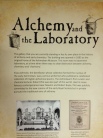This post originally appeared on Emily Monosson's blog and is reposted with permission here.
“Dear List, does anyone have access to this article?” A simple request posted to a list serve of scientists and policy makers. Someone suggested she try Sci-Hub; another sheepishly suggested #icanhazpdf.com; until someone else pointed out the illegality of those sites. One essentially suggested the author find her own damn article, even if it means paying for it. Eventually the list settled into a discussion about access; and about the scientific haves and the have-nots. Literature is our lifeblood. Quotes and citations and names and dates fill the chapters of dissertations, the paragraphs of research papers and review articles and reports. Who did what first; how many others confirmed; where did it go wrong; the controversies; the methods; the findings; interpretations and conclusions. What is lacking? And maybe most importantly, where next?

Access to scientific literature looms large, particularly for those of us working on the edge or outside of academia and even for many of those within. I am particularly sensitive to the situation, in part because I work in fear of losing the access I’ve enjoyed for the past twenty years. Which is part of the problem. Too many of us haves, have no idea how stifling lack of access is for the have nots. For much of my career I have worked obstinately, proudly and maybe sometimes too stubbornly outside of mainstream institutions – but I have enjoyed a non-teaching adjunct position with my local university for which I have been extremely grateful. I could not have done this for so long without access.
I am not alone. After the list-serve hullabaloo – I surveyed the list and elsewhere seeking experiences other than my own. Many like the Ronin Scholars are independent scientists; doing the work they love, outside of the Institution. Some are retired, or recent grads, or mid-career scientists. Basically all over the career map. Many do not have the access they need.
Access, wrote one respondent is “vital.” Without it writes another, “I would be lost”. “It is fundamental.” “100% essential.” You get the picture. But this we all know. Access to science, is what enables science. If we, as a scientific community, care about strengthening our community – particularly outside of academia — if we care about retaining scientists, then we must all care about access.
“One of the four canonical ‘norms of science’ identified by sociologist Robert K Merton in the mid-20th c. was communism or communalism – open sharing of methods and results,” writes Brent Ranalli, a friend, colleague and student of science history. I had asked him about the role of knowledge sharing in science.

“Merton’s reputation has waxed and waned, but he did put his finger on something. If you look back to the 1600s, one of the big changes that marked the scientific revolution was a greater open-handedness. Whereas alchemists viewed their knowledge as esoteric or as a trade secret, chemists tried to be as transparent as possible. Scientists in different countries coached each other through reproducing experiments. The first scientific journals were written to spread news of experiments and observations as broadly as possible. For some participants, there was a millenarian religious aspect to this—doing God’s work by spurring scientific participation and collaboration and innovation that would lead to a Golden Age.”
Now, as we enter the Golden Age of information and technology – somewhere, somehow, this scientific information increasingly became locked away behind paywalls. Creating a system of scientific Haves and Have-nots, as university libraries become gateways open to those with the right netIDs. As increasing numbers of us wander from the academy, whether working for non-profits, as high-school teachers, writers or god-damn independents – we risk losing access to this trove of essential data. And the larger scientific community, I think, risks losing us along with all the time, and money and knowledge it took to train us.
Continue reading the full post here.


